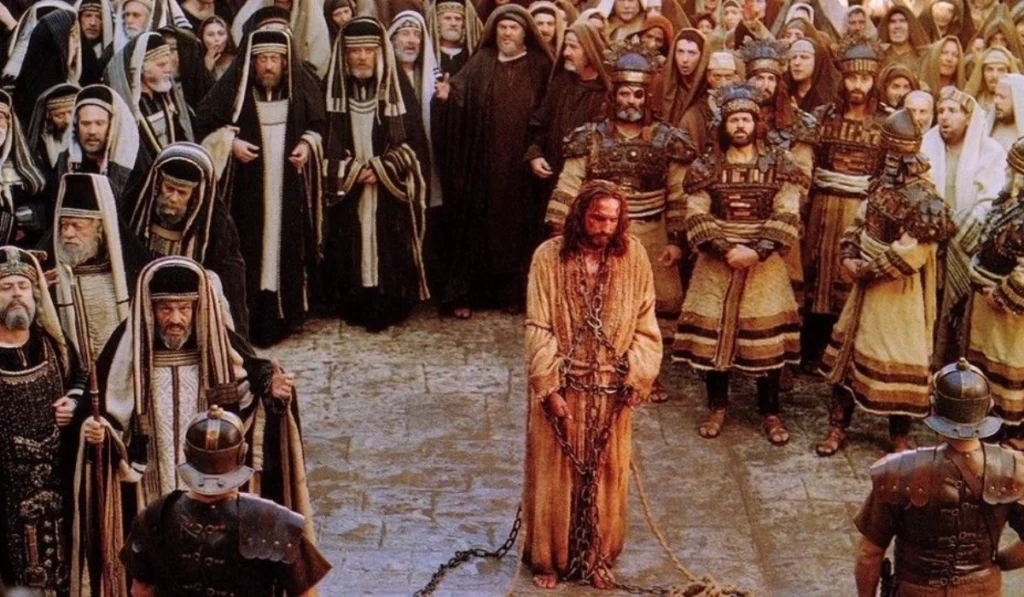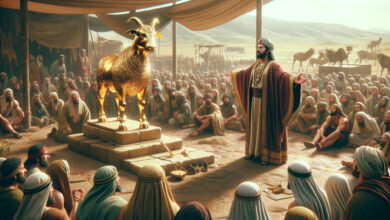Who Condemned Jesus Christ to Death? Unraveling the Mystery
Who Condemned Jesus Christ to Death? – The crucifixion of Jesus Christ is, without a doubt, one of the most intriguing and debated events in human history.
Diving deep into the plot that led to his death is an engaging and revealing journey.
But, amid so many reports and perspectives, one question remains highlighted: “Who killed Jesus?“
The Enigma of Divine Judgment: Who were the real culprits?
Many of us, upon hearing this question, instantly point to the Romans or Jewish religious leaders of the time.

However, it is essential to recognize that the trial and subsequent crucifixion of Jesus were not the actions of a single individual, but the result of a series of events and decisions made by multiple interested parties.
Jewish religious leaders, including the Pharisees and Sadducees, played a crucial role in Jesus' trial.
His revolutionary teachings and growing follower base threatened them, causing them to seek ways to silence him.
However, the final authority for any execution in Judea under Roman occupation belonged to the Roman governor – in this case, Pontius Pilate.
Although Pilate expressed his reservations about condemning Jesus, pressure from Jewish leaders and the turbulent crowd led him to relent.
Thus, although Roman hands carried out the crucifixion, it was the machinations of the religious leaders that put Jesus in that position.
Behind the Crucifixion: Why was Jesus seen as a threat?
“But why would anyone want the death of a man known for his peaceful teachings and miracles?” many may ask.
Jesus was not just a preacher. He challenged the established order, both religious and political.
His self-proclaimed title of “King of the Jews” was a direct affront to Roman authority, making him a target.
From the Tomb to Eternal Life: The Phenomenon of Resurrection
Jesus' death was not the end of his story. Reports indicate that three days after his crucifixion, he was resurrected, an event celebrated worldwide as Easter Sunday.
This miracle not only cemented his divinity to his followers, but also laid the foundation for the growth of Christianity as one of the largest religions in the world.
Conclusion
The journey to respond “Who killed Jesus?” takes us through a labyrinth of politics, religion and human passions. Jesus' death was the result of a combination of fear, politics, and betrayal.
But more than focusing on his death, it's his resurrection and the legacy he left that resonates through the centuries.
Of course, let's start with the FAQ (Frequently Asked Questions) on the topic “Who condemned Jesus Christ to death?”
FAQ – (Frequently Asked Questions)
Who was primarily responsible for sentencing Jesus Christ to death?
Jesus was initially tried by Jewish religious leaders, who then took him to Pontius Pilate, the Roman governor of Judea.
Pilate was ultimately the one who signed the order for Jesus' crucifixion.
Why did the Jewish religious leaders want Jesus dead?
Religious leaders, such as the Pharisees and Sadducees, viewed Jesus as a threat to their authority and the status quo, primarily due to his revolutionary teachings and growing follower base.
Jesus was convicted of what crimes?
Jesus was accused of several crimes, including blasphemy, for proclaiming himself the Son of God, and sedition, for being called 'King of the Jews', which was seen as a direct threat to Roman authority.
What did Pontius Pilate try to do before condemning Jesus to crucifixion?
Pontius Pilate tried to abstain from the decision, washing his hands and even suggested releasing Jesus as a gesture of goodwill during Easter.
However, under pressure from religious leaders and the crowd, he finally relented and authorized the crucifixion.
Who else besides Pilate played a role in Jesus' death?
In addition to the Jewish religious leaders and Pilate, the crowd also played a role, calling for Jesus' crucifixion and choosing to release Barabbas instead.




